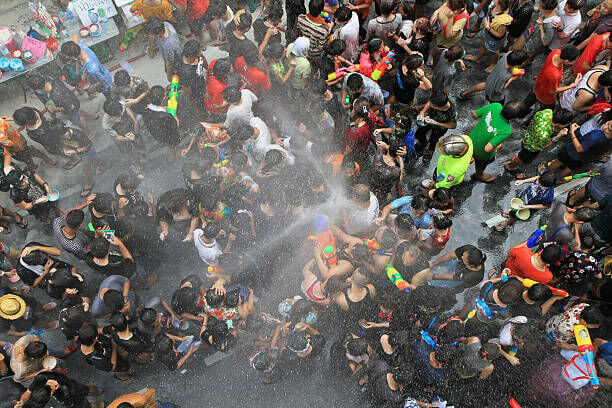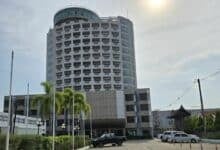High airfares dampen Songkran holiday spirit

Despite the extended Songkran holiday, a surge in outbound trips is not anticipated, mainly due to high airfares and deflation risk concerns. This perspective comes from travel agents who predict that the 21-day Water Festival campaign is more likely to entice foreign tourists than the local market.
Kriangphon Piyaekchai, the vice president of the Thai Travel Agents Association, explained that this holiday is no longer a high season for outbound trips as before the pandemic.
He further clarified that the recovering aviation industry’s high airfares mean only travellers with significant purchasing power can afford to travel during Songkran. The rest prefer domestic trips or delayed travel until it becomes more affordable.
Kriangphon noted that a five-day tour package to Japan during the Songkran holiday now begins at 40,000 baht (US$1,112), a steep increase from the pre-pandemic price of approximately 30,000 baht (US$834). Furthermore, the limited number of charter flights available during the Songkran holiday to accommodate outbound demand is another hindrance, reported Bangkok Post.
Despite the government’s recent extension of the Songkran holiday to five days, Kriangphon believes it won’t stimulate outbound trips as most travellers book their trips several months in advance.
Chaiyapruk Thongkam, president of the Association of Domestic Travel, anticipates that 65% of Thai tourists will opt for domestic travel during Songkran, with half of them visiting their hometowns. Chaiyapruk suggests that domestic tourists might extend their trips to five to six days, up from the usual three to four days, potentially benefitting second-tier destinations.
The Tourism and Sports Minister, Sudawan Wangsuphakijkosol, proposed a 100-million-baht budget to host the Maha Songkran World Water Festival 2024 in Bangkok and upcountry between April 11-15. However, Chaiyapruk expressed scepticism about the event’s ability to attract domestic tourists, suggesting it may appeal more to foreigners.
Chaiyapruk recommends that the government focus on long-term tourism sustainability by improving attractions and addressing the PM2.5 crisis in the North and Northeast, which currently deters upcountry tourism. He also advocates for support for tour operators still recovering from the pandemic’s impact.
Latest Thailand News
Follow The Thaiger on Google News:


























